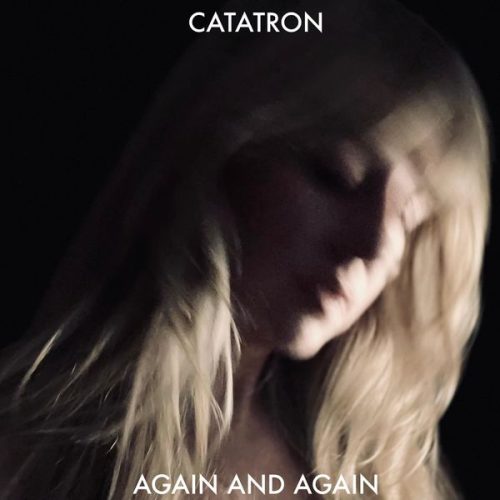People mean so many things when they say, “I love you.”
Sometimes the words are code for, “Thank you” or “I’m sorry” or “I want something from you” or “I can tell you want something from me.” Sometimes they mean the thing that words can’t say.
Saying “I love you” isn’t like saying what the weather is – those words don’t just describe circumstances, they change them. Saying “I love you” can make a love real, or make someone believe that a love is real; it’s part promise, part prayer. When someone says “I love you,” everything that happens after, even silence, is a response to that call.
In “Again and Again,” Catatron explores the way the meaning of these three words can shift as they’re repeated.
Catatron is an alternative folk project by Catherine Fanning. “Again and Again” is a single from the upcoming album, Lone Wolf, and features instrumental tracks by R. Badger Fanning and Travis Warner. The dynamic arrangement of guitar, piano, and double bass seem to me like a second character in the song – the instruments serve as the voice of the person sung to.
Songs have (at least) two ways of communicating story. The lyrics are one – from them, we get a narrative, or a character’s voice, or descriptions that can act as a voiceover to a mental movie. The instrumental parts of a song convey a different kind of information – wordless, based in the body, pure feeling.
Sometimes lyrics and music tell us the same thing, reinforcing each other.
But they can also resist each other, and when they do, the meaning of the song becomes something more complex than either the music or the lyrics taken alone.
Well-placed dissonance can turn a lyric inside out. Catherine sings, “You said to me that you love me, again and again and again and again and again and again and again.” Midway along the chain of agains, the chord sequence shifts into a 7th. What could have been an affirmation of love is subtly undermined – the 7th chord functions as a wordless “and yet…” And so the story changes – suddenly the lyrics seem to mean the opposite of what they say. The characters say “I love you” again and again… but maybe it’s not enough. Why so insistent? Who are they trying to convince?
This tension between words and music allows Catatron to tell a complex story in very simple words. A 7th chord under an “I love you” suggests some kind of pain or trouble, but doesn’t specify what. The repetition also folds a long span of time into the course of a short set of lyrics.
Half of this song is its refrain. The insistence of the repetition makes me think that the characters in the song are trying to speak their love into being. If you say it enough, it’ll be true; if I say it enough, we’ll stay together, even when things get discordant.







